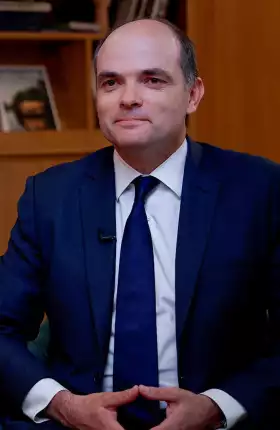
Education
- LLB, University of Concepción, Chile
- Master of Laws (LLM), Harvard Law School,
- MPA, Mason Fellow, Harvard Kennedy School
- Masters in Global Leadership, World Economic Forum
Cristián Rodríguez-Chiffelle is a partner and director at Boston Consulting Group’s Global Advantage and Public Sector practices. He is resident visiting scholar and Luksic Fellow at Harvard University’s David Rockefeller Center for Latin American Studies in Cambridge, MA, and an international consultant on global trade, foreign direct investment (FDI), trade and environment, and economic development.
Cristián has consulted with governments, firms, and international organizations across all regions. He has deep expertise in sustainable FDI strategies; investment attraction and promotion; FDI in renewable energy; global value chains and nearshoring; negotiation/implementation of trade agreements; climate change considerations on corporate governance; and Latin America.
Before joining BCG, Cristián was CEO of InvestChile, the nation’s investment promotion agency. His experience also includes acting as senior international consultant at the Inter-American Development Bank (IADB), and as head of international trade and investment policy at the World Economic Forum in Geneva. Prior to that, he served as trade and environment lead negotiator at the Trans-Pacific Partnership (TPP) trade deal for the Ministry of Foreign Affairs of Chile, where he also negotiated international agreements on investment, services, air transport and climate change.
Cristián currently serves on several boards including at the Chilean Economic Development Agency (CORFO), Start-Up Chile, the global Climate Governance Initiative (CGI), Chapter (Net-)Zero Chile, and the advisory board to Harvard’s Academic Forum for the New Chilean Constitution. He has published six book chapters on trade and FDI issues, teaches and speaks regularly on these topics, and is about to publish (London, 2023) his first co-edited/co-authored major book “The Elgar Companion to the World Trade Organization,” focusing on trade facilitation, digitalization and geopolitical tensions.







